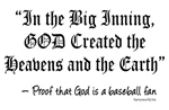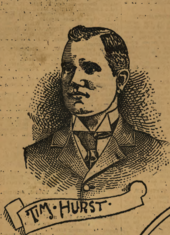I have been fortunate enough to have two MLB umpires as a guest on my show (Passed Ball Show- www.johnpielli.com). Al Clark wrote a book, "Called out but safe," which discussed his career as an AL Umpire from 1976-1999, how he lost his job as an umpire and how he later served time in prison for a federal mail fraud conviction. Ted Barrett is a current MLB umpire (since 2000) and most recently was one of the umpires in the 2014 World Series between the Giants and Royals. Both have backed up my opinion that umpiring is a thankless job and the fact that anybody that watches it thinks they can do as good of a job, if not better.
One of the things I learned by speaking with these men is how much umpires in general, want to get the game right. Much attention is brought to the players and managers that argue and the fact that umpires have the authority to remove uniformed personnel from the game. Not enough attention is brought to the fact that these men take pride in their jobs and it means a lot to THEM to get the calls right. It is difficult to think about the game from their perspective since the truth is- nobody attends, watches or listens to a baseball game to see or hear the umpires.
The intent of the umpire is to get the calls correct during the progress of the game, like I just stated. Of course, they make mistakes. But so do the players, managers and coaches that are on the field at the same time. And if a manager takes an effective pitcher out early and the team loses the game, he will likely keep his job. If a player strikes out with the game on the line, he could very well be in the lineup tomorrow. If a starting pitcher gets hit hard and taken out in the 3rd inning, he will get likely get another start.
One of my favorite movies of all time is the first Naked Gun with Leslie Nielsen. The home crowd loved him because he was calling strikes for their favorite team. They hated him later on when he was blatantly making calls against them. The silliness came from how the movie was poking fun at the calls being so blatantly wrong which in turn, incited the fans at the game. Imagine the real life version, the one in which even if you make the correct call, somebody is not going to be happy. And rather than hold themselves accountable for making an out, throwing a ball outside of the strike zone or simply not getting the job done, players seem to take the easy way out by blaming the umpire.
I have expressed by opinions about certain umpires that seem to make the game completely about them. I guess it is common in all professions for somebody to want attention, so being a baseball umpire is not immune to having that state of mind. Unfortunately, that brings more negative attention to umpires as a whole and is probably a misrepresentation of what a MLB umpire is about. As bad as an umpire can be that has the attitude of "LOOK AT ME!," it is a far cry from the actions of an umpire in the latter part of the 19th century.
Tim Hurst umpired in the National League from 1891-1904 and even stopped to manage the St Louis Browns two games into the 1898 season. Hurst was a representative of what many were at that time. I have written about several players of that time, including Terry Larkin, who were probably criminals that just happened to play professional baseball. At the time, disagreements were handled man to man, which applied to ever facet of life. Hurst carried that attitude onto the ball field and had various incidents through his career which crossed the line of what should have been exceptable.
His first suspension had nothing to do with his attitude and may be somewhat acceptable in today's world. He refereed boxing matches on the side, something the baseball owners had a problem with. This was in 1895. Two years later, in a game in Cincinnati, fans were not happy with some of his calls. They started to throw bottles onto the field, something that they should not have done. Hurst one upped the fans by picking up a bottle and throwing it back into the stands. This resulted in a fireman being struck just over his right eye. Hurst was arrested and fined $100 for his actions. A brighter decision would have been to simply stop the game, something that certainly would have happened in a game like that today.
Hurst's temper and bad language caught the ire of NL owners, who as early as 1900 wanted him out. In 1904, they finally got their wish when Hurst was out after just one game. He returned to baseball as an AL umpire in the middle of the 1905 season- but not without controversy. According to Hall of Fame umpire Bill Klem, Hurst would not hesitate to challenge any player who disagreed with his calls to a fight. There was a reported incident where he supposedly told a player that he would spit in his eye if he stepped out of the batters box again. When the batter stepped out, he did just that. Among players known to have physically duked it out with Hurst was former New York Highlanders SS Kid Elberfeld.
Hurst's final straw came in a game in Philadelphia in 1909. It was the second game of a doubleheader. The very mild mannered future Hall of Fame second baseman Eddie Collins disputed what seemed like an incorrect call made by Hurst. Hurst responded by insulting Collins and spitting his chewing tobacco in Collins' face. Apparently, Hurst called Collins out for advancing to second base on a dropped fly ball. It looked worse for the ump when it was proven that he deliberately made the incorrect call to speed up the game so he could catch a train from Philadelphia to his home in New York. AL President Ban Johnson later said that his insult to Collins was so bad it warranted termination by itself.
I am sure there were other Tim Hursts umpiring baseball games. Remember, this was a time where there was just one umpire. It was simply one man against what could have been the entire stadium. In the single umpire's defense, you needed to be tough or else the players and managers would walk all over you. Clearly, Hurst crossed the line. An umpire like that would not last in the game today. Imagine a four man umpire team with a Tim Hurst. His peers would not respect him and he would be out of the game quickly.
Two very important things are stuck in my head when it comes to umpires and perhaps it could change somebody else's view as well. There is no doubt that these men have the best of intentions to call the game correctly. And the quality of umpires are much better ethical wise than in the game years ago. At least there are no more Tim Hursts. He really did have a train to catch and did not represent the integrity that officials in professional sports stand for. So, when you watch a baseball game this week and see a call you do not agree with, think of this: it could be much worst. Umpires used to not have all the resources they have now and at one point, had to work by themselves. And a lot worse people put on the umpiring uniform than do now in the game today.


 RSS Feed
RSS Feed
